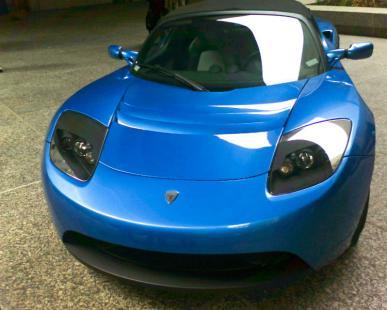60 Minutes is a great journalistic institution, but the folks there may be at risk of developing a reputation for bias against public investment in clean energy. You may remember that in January they ran a segment that wrongly claimed the government's loan program for clean technology was a bust. Their story ignored the well-documented fact that many of these federal investments have worked, supporting companies that became successful and created good jobs, greatly assisting America's transition to a cleaner future.
On Sunday night's program, they featured one of those companies -- Tesla -- but neglected to even mention it had received a $465-million federal loan. Apparently the idea that a government investment actually helped this now-successful enterprise was not part of the narrative 60 Minutes wanted to reveal. In fact, reporter Scott Pelly did ask Tesla founder Elon Musk about the government loans, but 60 Minutes left it out of the televised segment, making it only available as a video clip buried in the online transcript. (In the video, Musk said the government loan "accelerated our progress" and was "very helpful.") If not for the unfair report on clean energy in January, you might just write this off as an unfortunate editing choice. But it's beginning to feel like a pattern.
The story rightly focused on founder Musk, whose drive, daring and engineering skill are the most important reason behind Tesla's success. But television viewers also heard about how private investors saved the day at the company's low point in December 2008. For some reason, though, they didn't hear about the enormous government investment around the same time -- paid back in full and well ahead of their deadline -- that helped Tesla retool and go on to great reviews, sales and a bright future.
Now, there is certainly an ideological debate to be had over whether the government should ever make investments like this. Libertarians will say that only the private sector and financial markets should do it. But many others believe that if society will ultimately benefit, and the market won't invest because the profits are too far away, the government has a role to play in building for the future. From the railroad to the Internet, early and sustained government action -- when the private sector couldn't do it on its own -- led to enormous public benefits. In Tesla's case, it not only helped grow a healthy business which is creating jobs and clean car options, but the company now plans to build a huge cutting-edge battery factory in the Southwest. Morgan Stanley calls it possibly the "missing piece in the renewable energy puzzle." How's that for a public benefit? But whichever side of this debate you favor, it's only fair play for 60 Minutes to mention the government's role in the Tesla story after the earlier skewed story on clean tech investment.
If you're wondering how the markets now view Tesla -- a receiver of a government loan -- let's check in again with Wall Street's Morgan Stanley. In a recent report to investors, they called it "our top pick" among U.S. automakers with the potential to revolutionize both the auto and utility industries. That's a pretty nice return for the American people.
This was originally posted on EDF Voices.

